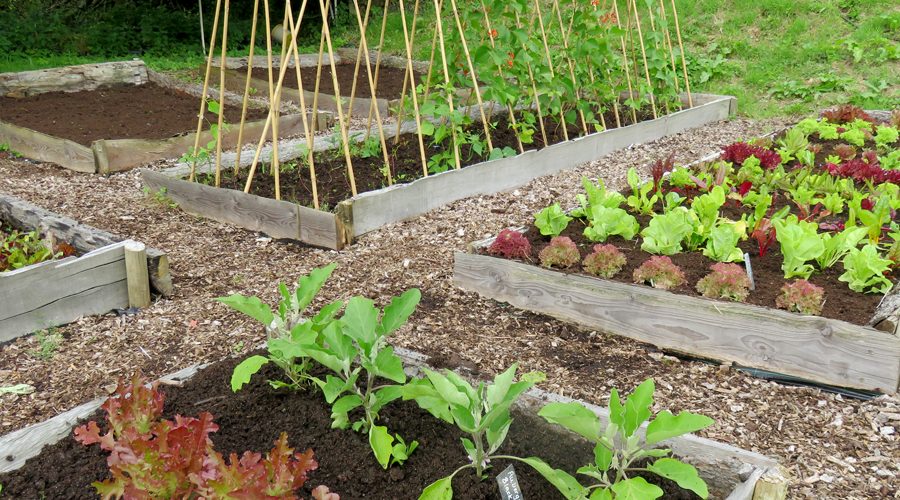A lot of gardening books and gardeners swear by the practice of crop rotation. It is a good practise and can be used to help keep pests and diseases to a minimum. Essentially, it involves planting certain veg types (e.g. roots) in Bed 1 in the first year, and then moving them to Bed 2 in the second year, Bed 3 in the third year and Bed 4 in the fourth year and then back to Bed 1 so that you don’t grow them in the same place two years running.
The idea behind it is to avoid depleting the soil of certain nutrients, and to avoid the build up of disease and pests in the soil.
It is not strictly necessary, so if you are new to gardening and feeling overwhelmed, then please don’t worry too much about it until you’ve got a bit more experience under your belt. Instead, just be sure to add fresh compost to your plot before planting and enjoy getting to know the needs of your crops. Once you’ve mastered earthing up potatoes, pinching out tomatoes and protecting brassicas from caterpillars, then you might want to get familiar with crop rotation as a next step.
When you are ready to start practising crop rotation, we’d suggest starting off very simply and not getting too bogged down with it. Keep adding plenty of organic matter to your beds, as feeding and nourishing the soil will give your plants such a big boost, making them healthier and more disease-resistant in the first place. Beyond that, think about your veg patch last year, and rotate crops where you see fit. For example, if your potatoes last year suffered from blight, then plant them in a different patch this year. Likewise, if you had a problem with clubroot with your brassicas, move them to a different bed for this season. Don’t worry too much about everything else, just plant it where you want making sure you keep to plant spacings and that they all have good amount of sunlight etc.
You can go further, and implement a 4 year rotation as we mentioned at the start, and this is a good practise that can be beneficial. However, we are believers that it is not strictly necessary as long as you are adding compost/organic matter and looking after the soil (we always like to keep things simple.) We’ve been growing our squashes in the same bed for the past 6 years now, topping it up with compost each season and they always do brilliantly.

